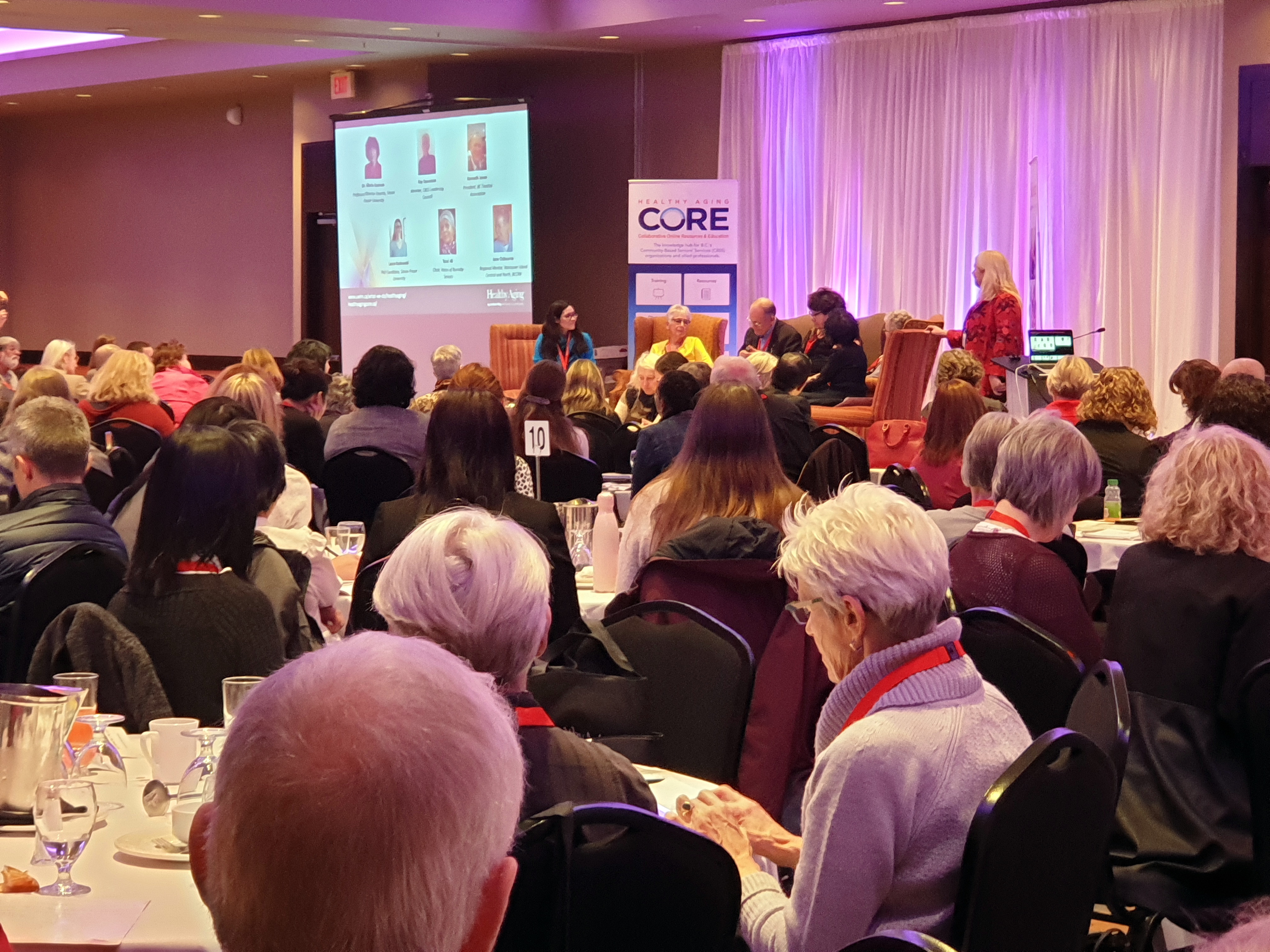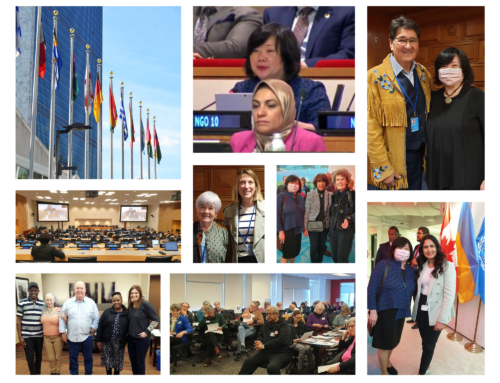The second biennial gathering of British Columbia Community-Based Seniors’ Services (CBSS) organizations took place in November. More than 350 people from non-profits, academia, government agencies and private corporations attended to move the older person agenda forward.
The two-day action packed summit included reports by CBSS working groups, “ask a pro” peer networking session, rethink aging activities and various exhibitions. Conversations with fellow participants were engaging and it was wonderful to hear new ideas, perspectives and solutions. One thread that stood out for me was the intersection of older persons and technology. It is a subject that will only become more and more important in the coming years.
Here are examples I think helpful to look at in more depth.
Podcasts on Aging Created by Older Persons
It all started with the idea of putting together a radio show! Seniors at the 411 Seniors Center Society wanted to talk about aging, share experiences and brainstorm ideas on air. Since it’s 2019, the answer is a podcast. And create a podcast they did! A group of 12 seniors created the content, wrote the scripts and interviewed guests. They also worked with Podstream studio to record the shows. A shining example of just getting out there and doing it, the Powered by Age podcast launched on National Seniors Day in 2019. It took just eight weeks to complete record four episodes and the discussions ranged from active aging, making money, meditation, technology tips to storytelling.
This project shows how technology can really enable older persons to use their voice and have it heard. It’s also a wonderful demonstration of creativity, will and teamwork regardless of age.
Connecting Older Persons and Caregivers to Support Resources
Older persons and family caregivers constantly struggle with where to find support and resources. Government agencies offer some support and resources, as do local clubs, community centers, non-profits and private companies. But none of these groups talk to each other so information is in different places.
Then where does one begin to look? Well, usually it is word of mouth, calling government 1-800 numbers or google. That’s okay if you know the name of what you’re looking for or have the time and patience to sort through hundreds of wrong things. Most of us don’t. Thankfully, Eldercare Foundation and BC Healthy Community decided to join forces to tackle this problem. They are developing, ElderConnect, a community portal with resources, tools, education and social connections that support older persons and caregivers.
The portal provides information on four themes – Be Well provides information and resources on health events, services and issues; Be Secured focuses on financial and physical security; Be Connected gives information on the social support network; and Be Enriched covers on education, culture, art and spirituality.
Each community has its own web page portal where local information, such as informal help groups or meet ups, are listed alongside city-wide, provincial and national resources. Older persons without online access can borrow a tablet. The site is being built live so feedback can be given in real time. At the moment, three communities are part of the pilot project. Once the kinks are worked out, more communities will be added.
Supporting Older Persons with Wellness and In-Home Health Monitoring
Now that security cameras and remote monitoring technology are relatively cheap, it is becoming more and more common for adult children to set up cameras in their parents’ house, so they can be sure their loved ones are okay.
Best Buy Health offers much more than camera monitoring. Their primary focus is prevention. They tailor health monitoring kits based on what the families need. Then they install the kits with their Geek Squad expertise.
For example, older persons tend to be more restless in the night than younger people. Older bodies produce less melatonin and experience more chronic pains. So older persons generally don’t sleep as deeply as younger people. The result of not sleeping deeply, as parents of young children definitely know, is trouble with thinking, memory and mood changes. In older persons, there is also an increased risk of falls.
Knowing how often an older person gets in an out of bed can help prevent an incorrect dementia diagnosis. Also information about how often the fridge is opened can help sort out nutrition problems or difficulty in managing diabetes.






